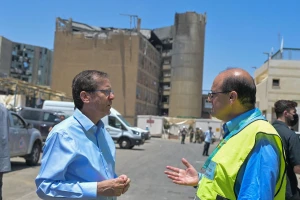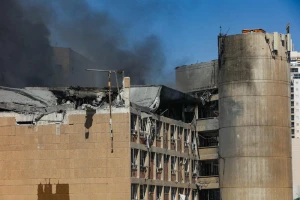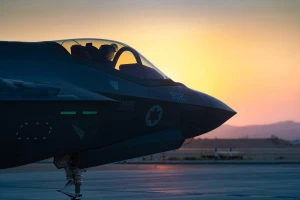Beersheva hospital faces long recovery after Iranian missile hit
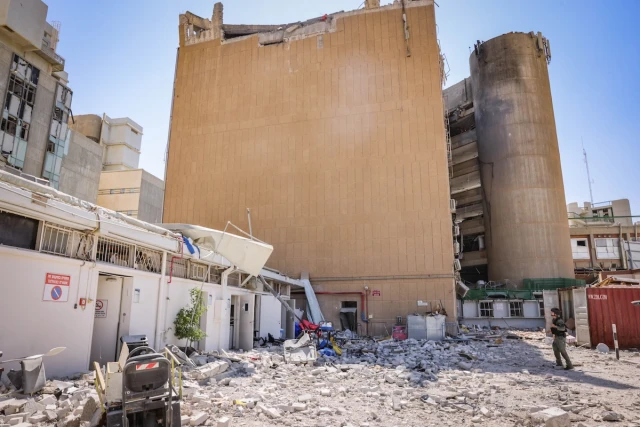
Soroka Medical Center, located in the southern Israeli city of Beersheva, sustained severe damage from a direct Iranian missile strike during the 12-day war between Israel and Iran last month. The facility’s upper floors, along with operating rooms, were reduced to rubble during the attack. With some patients now being treated in makeshift underground wards, it may take up to a year for the hospital to fully recover.
“The physical conditions are horrific – what you’d call ‘hell’s basement – but the staff is doing everything they can,” said, Limor, whose 80-year-old father, Haim, is currently being treated in the temporary underground facility.
Soroka's deputy director, Dr. Tzachi Slutsky, agreed that the situation is far from ideal.
“You wouldn’t want to leave anyone here, but we have no other space,” Slutsky stated.
“In the end, an 80-year-old man with a urinary tract infection still needs to be admitted – and he deserves dignity. This is not that. I wouldn't hospitalize my mother here today in this situation," he continued, adding that it would take between six months to a year for the hospital to return to full capacity.
Despite the severe challenges, Slutsky notes that the hospital is still performing surgeries. “We canceled only non-essential surgeries that don’t endanger the patient or seriously affect their quality of life,” he said. “Oncology, trauma, and time-sensitive cases are all being treated immediately,” he explained.
The Israeli Tax Authority has assessed that reconstructing the hospital could cost between $54 million and $82 million. “That’s just a preliminary estimate,” Slutsky said. While private donors are assisting the recovery, the doctor emphasizes that the government needs to step in. “This is far bigger than Soroka or Clalit,” Slutsky assessed, adding, “It requires direct government investment – no question.”
He revealed that his colleagues in the West are surprised that Soroka continues to operate despite the extensive damage from the missile impact.
“Colleagues in Europe tell me, ‘Anywhere else would have shut down the hospital for six months, rebuilt it, and only then resumed operations.’ But that’s not an option here – it just doesn’t exist,” Slutsky said. “And it’s not in our DNA. Soroka is the only hospital in the Negev. It serves over a million people.”
Israeli President Isaac Herzog, who visited the hospital shortly after the missile attack, condemned “the destruction and devastation caused by an Iranian missile fired indiscriminately” at Soroka Medical Center. “This is a war crime!”
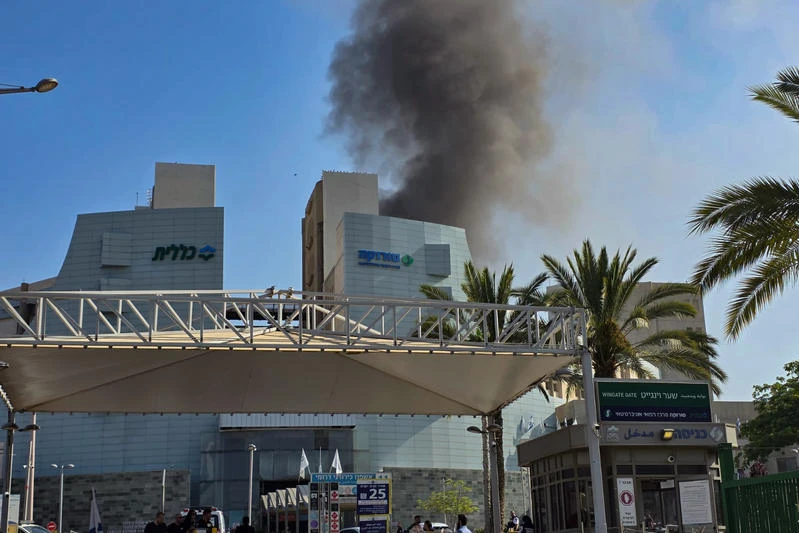
Prior to the Iranian missile attack, Soroka was one of the busiest hospitals in Israel, treating both Jewish and Arab patients, including residents of the Gaza Strip, as well as from Judea and Samaria, internationally known as the West Bank.
Slutsky explained, “Three hours after the missile strike on that Thursday, the ER was already open. We were performing heart and brain catheterizations. The trauma unit and southern operating rooms were functioning. The staff here knows they’re the only lifeline for the region – so they keep going,”
Prof. Leonid Barsky, the head of internal medicine at Soroka, admitted that the hospital faces serious challenges.
“We’re doing the best we can, but it’s hard when you don’t even have basic conditions,” he said. Even so, Barsky added, “When the missile hit, we didn’t stop providing care. We just kept going.”
Looking ahead, Slutsky urges the state to intervene and assist in rebuilding the hospital into an even stronger institution than before the attack.
“We’re doing everything we can to serve the Negev, but this situation can’t fade into the background. Soroka cannot be left to fend for itself. This is the moment for the state to step in – not just to restore what we lost, but to rebuild stronger.”

The All Israel News Staff is a team of journalists in Israel.
You might also like to read this:


